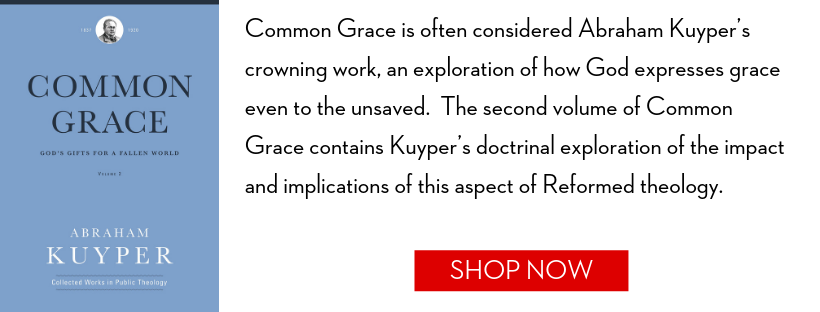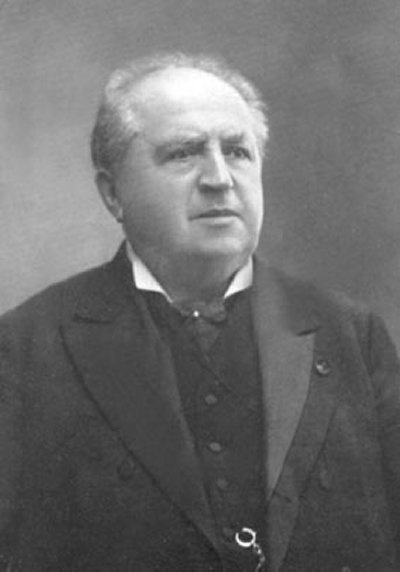The system of the national church is diametrically opposed to the doctrine of the church as organism. For the proponents of the latter confess that we must not want to limit the influence of Christ to elect persons, as if nothing else of Christ were noticeable on earth except the work of the Holy Spirit in regenerate persons. Such nominalism is rejected by both sides, and the proponents of the church as organism as well as the men of the national church concede that the Christian religion also impacts the organism of our human life.
But only those who speak of the church as organism, as distinct from the institution of the church, maintain that the blessing of God in that broader sphere can work as intended only if the institutional church organizes itself according to the requirements given in the Word, and if baptism, as a sacrament of the Lord, is administered only to the believers and their seed, and such under a constant purification by means of church discipline. They therefore distinguish between the church as institution and as organism, and they do this in order that justice may be done to both the sacredness of the covenant among those who confess Christ and the influence that must go out into this world outside this sphere.
But precisely this is impossible if we adopt the position of the national church. For in that position there is only one sphere, and that sphere is the church as institution. The influence of the Christian religion stretches no further than that sphere, and for that reason, if the nation is to share in that blessing, that entire nation must be in the church. And in order for this to be possible, the essence of the church and the holiness of God’s covenant are sacrificed for the interests of the nation. By contrast, we confess the reality of two spheres.
that illumination will be all the more powerful and penetrating the more clearly and purely the lamp of the gospel is allowed to burn within the institution of the church
First is the sphere of confessing believers, or the objective church, the sphere of the covenant. As the Heidelberg Catechism states, baptism extends exclusively over this first sphere, that the baptized may be “distinguished from the children of unbelievers.” Only within that sphere is the Lord’s Supper administered, and only in that sphere is an “assembly of believers” recognized. Only the church that coincides with this sphere possesses the hallmarks of the true church: the pure preaching of the gospel, the pure administration of the sacraments, and the practice of church discipline for correcting faults in both confession and life.
But we do not stop here. This church as institution does not cover all that is called Christian. Even though the lamp of the Christian religion burns only within the walls of that institution, its light shines through the windows far beyond it and shines upon all those aspects and connections of our human life that express themselves in various manifestations of human life and human activity. Jurisprudence, law, family, business, occupation, public opinion and literature, art and science, and so forth—the light shines upon all of this, and that illumination will be all the more powerful and penetrating the more clearly and purely the lamp of the gospel is allowed to burn within the institution of the church.
In addition to the first sphere of the church as institution, and necessarily related to it, we are acquainted with a second sphere as well, determined by the length of the beam of light that proceeds from the institutional church out across the life of people and nation. Because this second sphere is not attached to specific persons, it is neither determined nor circumscribed by the registering of a certain number of members, nor does it have its own office bearers, but it is absorbed into the very life of people and nation; therefore, this influence that works outside the church as institution points us to the church as organism.
For the church as organism exists prior to the institution; it always stands behind the institution; it is the only thing that truly lends that institution essential value. The church as organism has its center in heaven, in Christ. It encompasses all the ages from the beginning of the world to its end, in order after us to fill all eternity. And it is therefore this church as organism that can manifest itself where all personal faith is absent but where something of the golden luster of eternal life nevertheless is reflected on the common skyline of the grand edifice of human life.
This excerpt has been adapted from Common Grace, volume 2, part of the Abraham Kuyper Collected Works in Public Theology.





